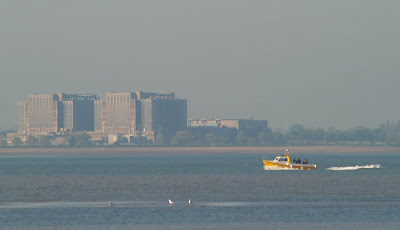I’m going to start transcribing, in edited form, my learning church talks on communion into the blog, but in small chunks, which may make them easier to digest!! Click ‘full post’ for text.
What is the Eucharist? The word refers to the giving thanks of the community. ‘Eucharist’ is simply a Greek word meaning thanksgiving and it’s the ecumenical word, in other words when the different churches come together to talk about it, that’s the word they use to describe it and it doesn’t necessarily have any other great theological import other than this. Of course what name you give to the meal is freighted with all sorts of politics – I tend to try and ignore the politics so far as I can! – whether you call it the Lord’s Supper, or the Mass or the Eastern Orthodox call it the Synaxis, there are all sorts of names, but breaking bread and wine and sharing it as the community of the faithful telling the story of Jesus, that’s what we are talking about.
This is Tom Wright, Bishop of Durham:
“I firmly believe that when Jesus himself wanted to explain to his disciples what his forthcoming death was all about he didn’t give them a theory, he gave them a meal.”
In other words, it’s when we actually share this meal and take part in this process that we start to understand what our faith is all about. The earliest description we have, as I am sure you are all aware, comes in 1 Corinthians 11 and Paul says,
For I received from the Lord what I also passed on to you: The Lord Jesus, on the night he was betrayed, took bread, and when he had given thanks, he broke it and said, “This is my body, which is for you; do this in remembrance of me.” In the same way, after supper he took the cup, saying, “This cup is the new covenant in my blood; do this, whenever you drink it, in remembrance of me.” For whenever you eat this bread and drink this cup, you proclaim the Lord’s death until he comes.
I’m sure you’re familiar with the passage, it is pretty much the heart of what the priest says every time there is communion. In some churches it is exactly St Paul’s passage which is used, in some churches it is slightly repackaged, rephrased, but that is the earliest text we have got referring to it. And it is within about twenty years after the event.
We don’t know exactly which year it was when Jesus died, but it’s not unreasonable to think it being from early to mid-thirties AD and that Paul’s letter is early to mid-fifties AD, so you are talking about twenty years after the event, in other words it is within living memory. Just to emphasise that, it is not really very long at all after the event, and it is in a context where there is an existing practice, the people he is writing it to are aware of this, the story has gone before them, and they are acting on it. So Paul is referring to something which is already going on, which means that the Eucharist, as an ongoing practice within the church community, was established long before Paul is writing his letters.
Therefore: we can be pretty confident that the heart of the Eucharist goes back to Christ himself, and that it is not something invented out of whole cloth by the later church (compare a couple of references in Acts to the Apostles coming together to break bread on the first day of the week and so on).
But what did Jesus mean by it?






